Uh-oh! Your bathroom’s turned into Niagara Falls. What to do in a plumbing emergency? Don’t panic – we’ve got your back. Did you know the average home wastes 10,000 gallons of water yearly from leaks? Yikes! This guide’s got 6 quick fixes to stop that drip-ocalypse in its tracks.
So grab your toolbelt, and let’s plug that leak!
Key Takeaways
Act fast in plumbing emergencies by shutting off the main water valve, turning off electrical appliances near leaks, and opening outside spigots to relieve pressure.
Common plumbing issues include leaky pipes, burst pipes, overflowing toilets, clogged drains, water heater failures, and gas leaks. Watch for signs like water stains, mold, and unusual sounds.
Try DIY fixes for minor problems like leaky faucets or clogged drains using plungers, drain snakes, or homemade cleaners. Call a pro for major issues like gas leaks or sewer line clogs.
Prevent future emergencies with regular maintenance like checking for leaks monthly, flushing water heaters yearly, and cleaning drains weekly. Consider installing a leak detection system to catch problems early.
The average home wastes 10,000 gallons of water yearly from leaks. A single leaky faucet can waste up to 3,000 gallons per year.
Table of Contents
Identifying Common Plumbing Emergencies
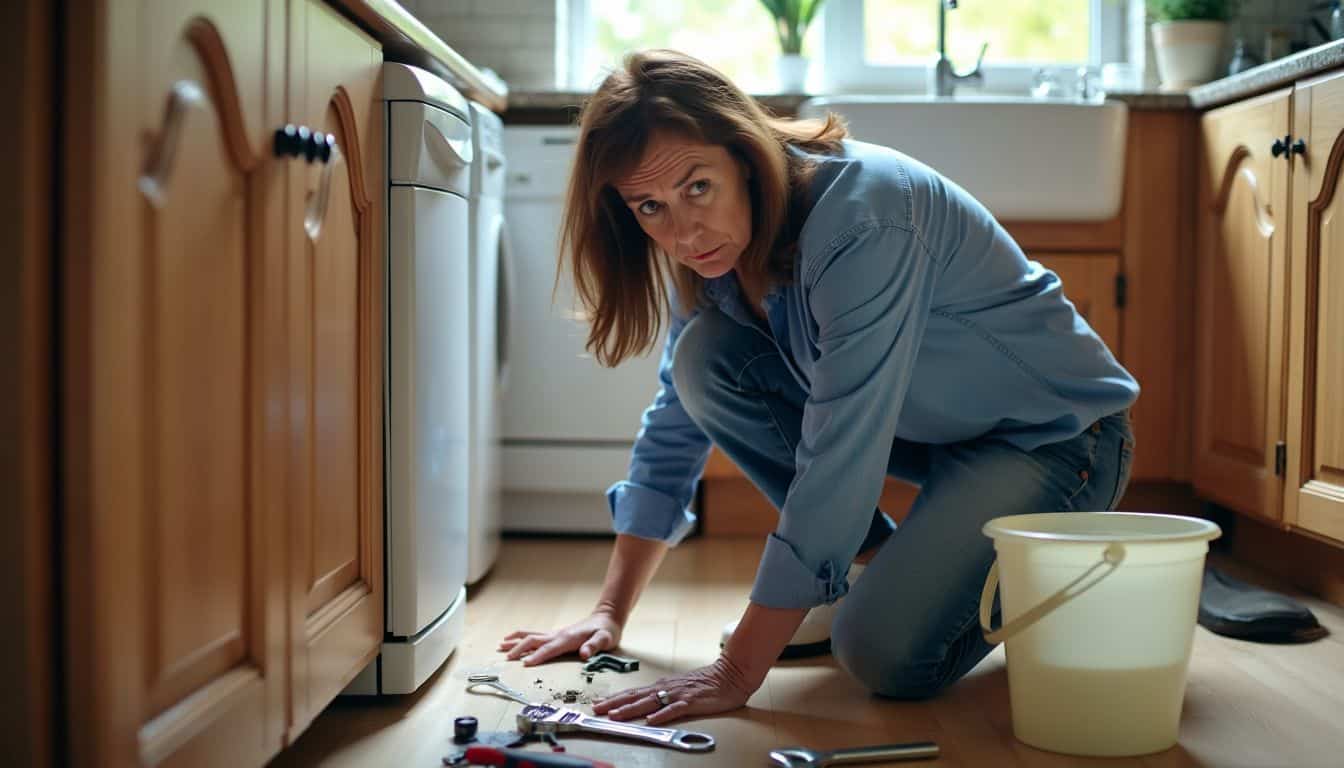
Plumbing emergencies can strike when you least expect them. From leaky pipes to overflowing toilets, these issues can quickly turn your home into a watery mess.
Signs of Leaking Pipes
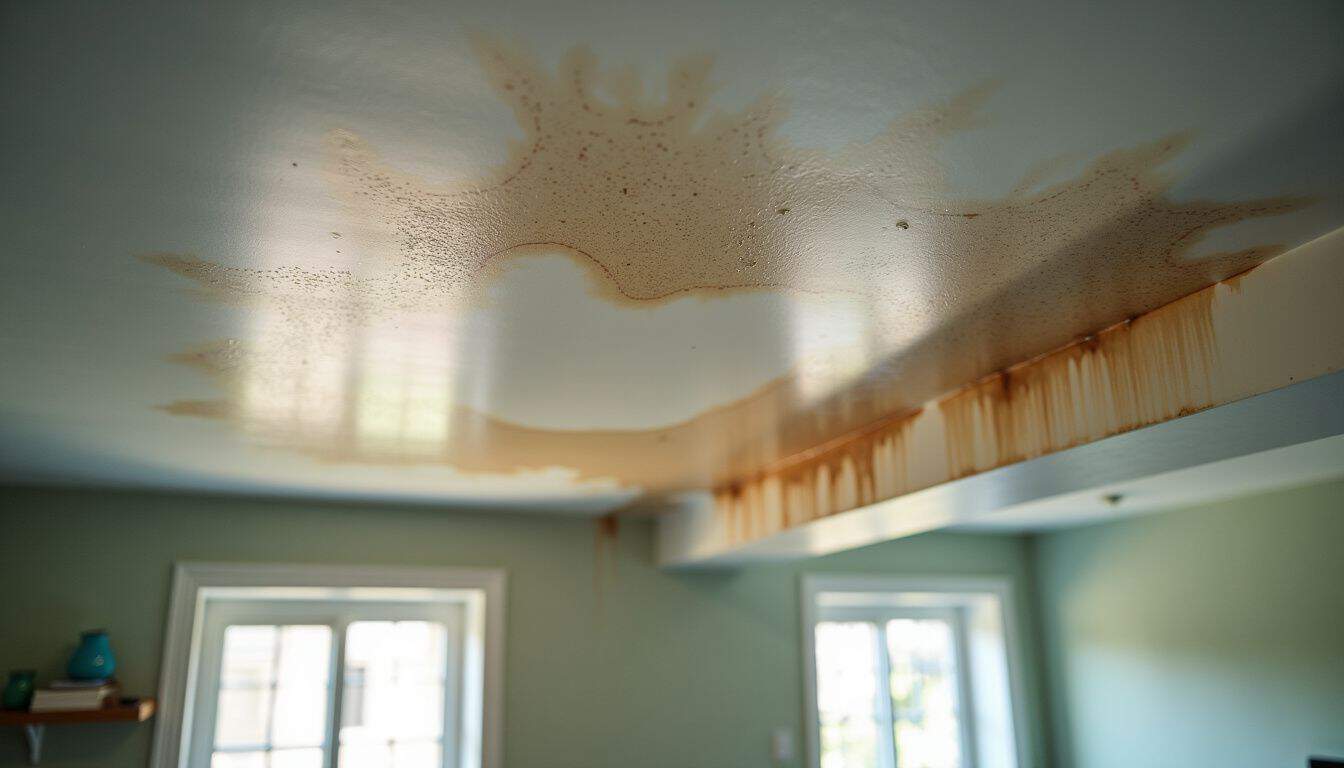
Leaky pipes can be sneaky troublemakers. Water stains on ceilings are a dead giveaway of a long-term leak. But that’s not all, fellas. Listen up for dripping or rushing sounds – they’re your pipes’ way of crying for help.
If you hear these noises, it’s time to play detective.
A small leak can waste 10,000 gallons of water a year. That’s enough to fill a backyard pool!
Mold growth, musty smells, or unexplained puddles are other red flags. Keep an eye out for peeling paint or wallpaper too. These signs mean your pipes might be leaking behind the scenes.
Don’t ignore them – act fast to avoid a full-blown water disaster in your man cave.
Consequences of Burst Pipes
 Burst pipes are a homeowner’s nightmare. They can unleash a flood of problems – literally. Gallons of water gush into your home, soaking everything in its path. Floors, walls, and furniture become waterlogged in minutes.
Burst pipes are a homeowner’s nightmare. They can unleash a flood of problems – literally. Gallons of water gush into your home, soaking everything in its path. Floors, walls, and furniture become waterlogged in minutes.
The damage spreads fast, ruining carpets, warping wood, and shorting out electronics. It’s like a mini-tsunami in your living room!
But the trouble doesn’t stop there. Mold starts growing within days, threatening your health. Your water bill skyrockets from all that wasted H2O. And repairs? They’ll cost you a pretty penny.
That’s why it’s crucial to act fast and call a qualified plumber in Perth at the first sign of trouble. Don’t let a small leak turn into a big disaster.
Quick action can save you from a world of hurt – and a whole lot of cash.
Dangers of Overflowing Toilets
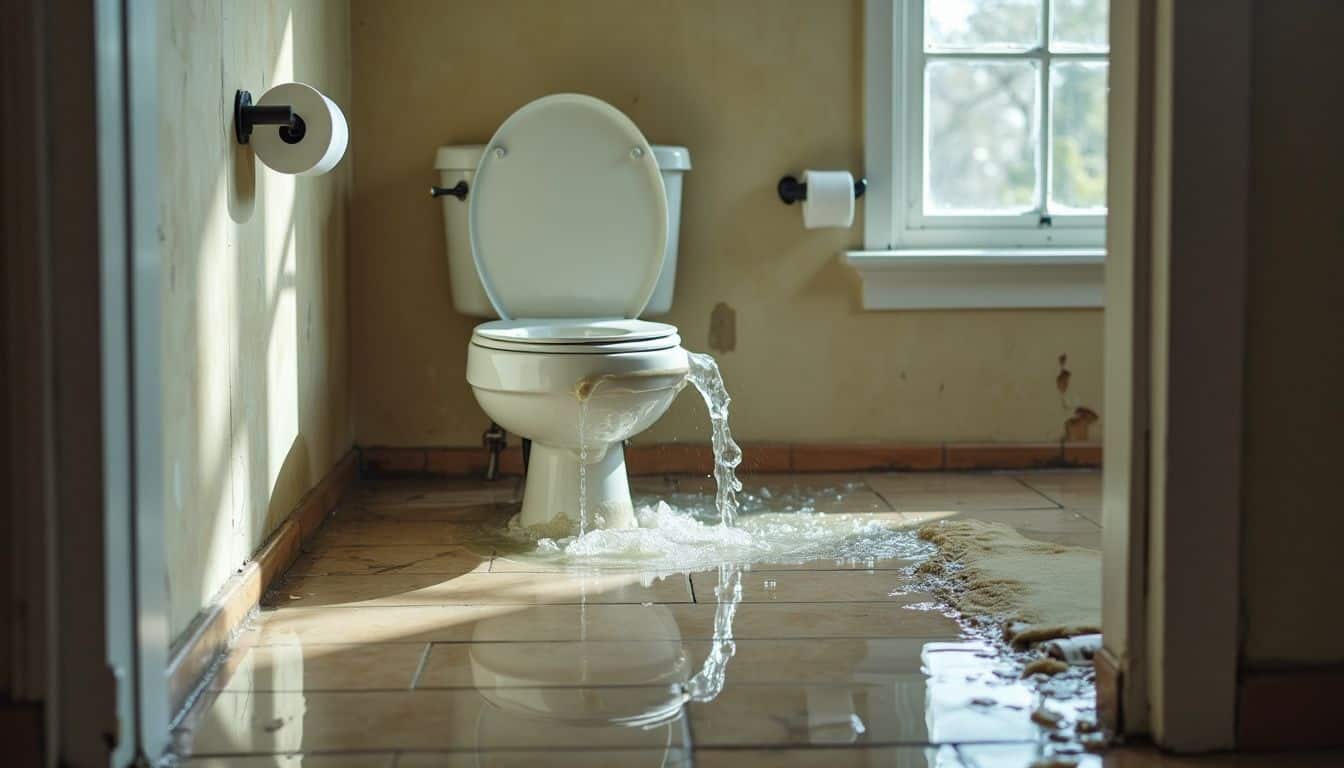
Overflowing toilets are a real pain in the… well, you know. They can waste up to 200 gallons of water daily – that’s like filling a small pool! But it’s not just about wasted water.
These floods can damage floors, walls, and even seep into lower levels. Yikes! The worst part? The nasty stuff that comes with it. We’re talking germs, bacteria, and other gross things you don’t want in your home.
Here’s a quick fix: find the valve behind the toilet and turn it off. This stops the flow for now. But if it keeps happening, you might need a pro. Don’t mess around with persistent overflows – they could signal bigger issues in your pipes.
Trust me, I learned this the hard way after a DIY attempt left my bathroom looking like a swamp. Save yourself the headache (and the wet socks) by calling a plumber for those stubborn clogs.
Issues with Clogged Drains
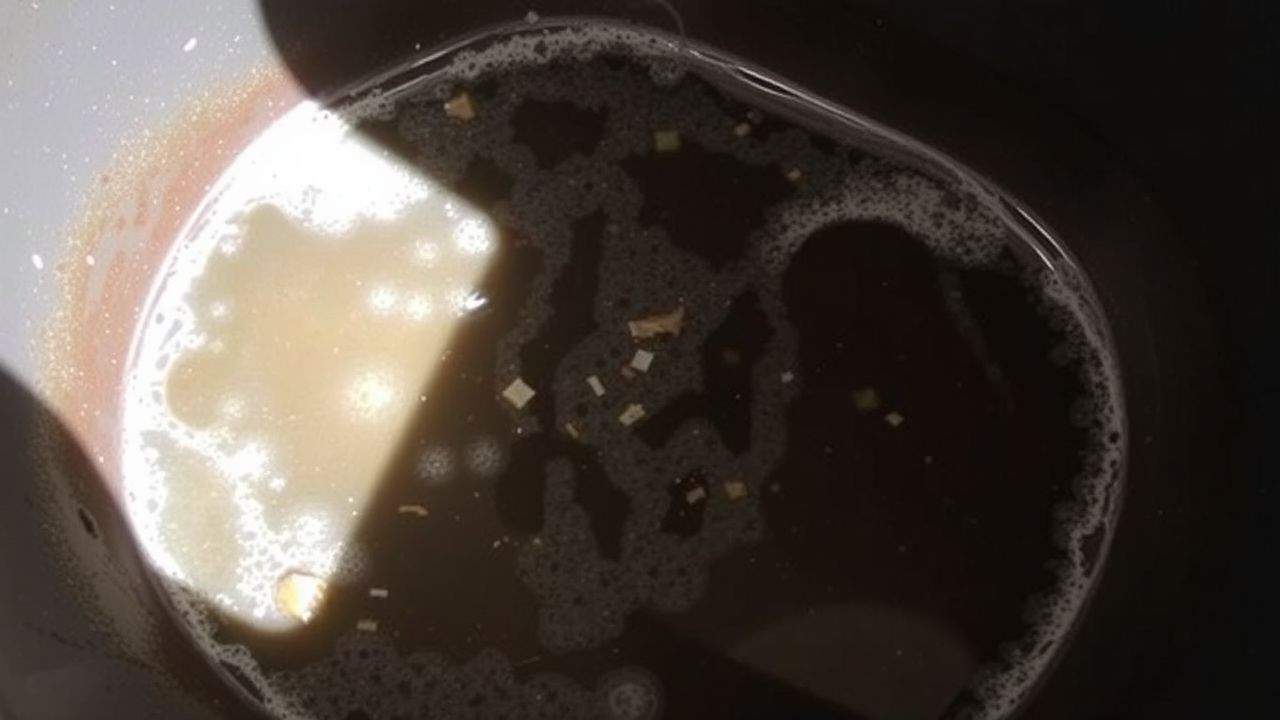
From overflowing toilets to clogged drains, plumbing woes can strike when you least expect. Drains often get blocked by a mix of soap scum, grease, and food bits. These clogs can lead to slow water flow and funky smells in your home.
It’s like your pipes are throwing a stinky party, and you’re not invited!
A clogged drain is like a traffic jam in your pipes – nothing’s moving and everyone’s frustrated.
I once faced a nasty clog that turned my morning shower into a kiddie pool. Trust me, it’s no fun. If you’re dealing with multiple slow drains or bad odors, you might have a bigger sewer issue on your hands.
In that case, it’s time to call in the pros. They’ve got cool tools like drain snakes and hydro jets to blast through those stubborn clogs.
Problems with Water Heater Failures
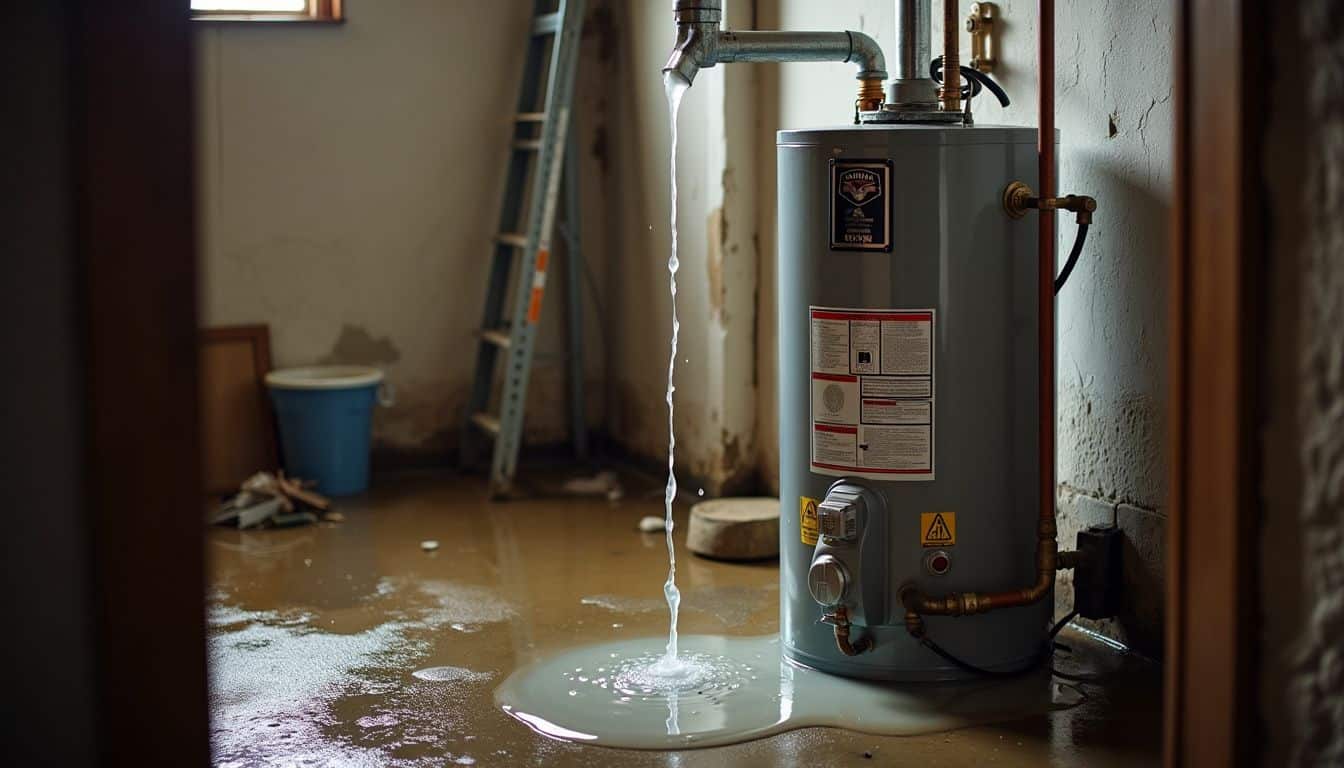
Water heater troubles can really ruin your day. Imagine jumping in the shower, only to get hit with ice-cold water – yikes! But that’s not the worst of it. A busted water heater can flood your home or even blow up if you’re not careful.
I once had mine start making weird noises like an angry dragon. Turns out, it was about to give up the ghost. Good thing I caught it in time!
These issues get extra nasty in winter. No one wants to wake up to a freezing house and no hot water when it’s snowing outside. Trust me, I’ve been there. It’s no fun. Plus, fixing a water heater in sub-zero temps is a real pain.
So keep an ear out for odd sounds, check for leaks, and if your hot water’s acting up, don’t ignore it. Your future self will thank you for dodging that bullet.
Risks of Gas Leaks
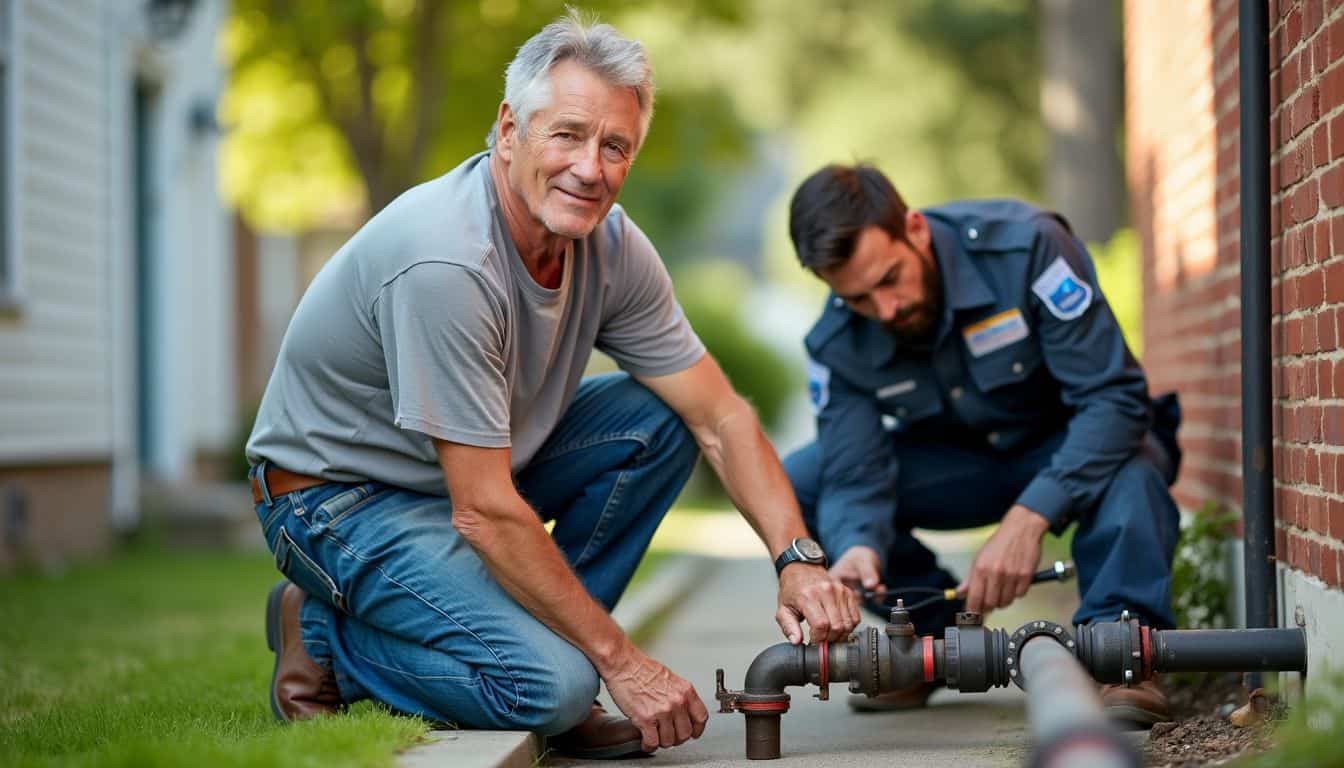
Gas leaks are no joke. They can lead to fires, explosions, and even death. Companies add chemicals to gas to give it a smell. This helps you spot leaks fast. If you catch a whiff of rotten eggs, act quick.
Get out of the house and call 911 right away. Don’t flip any switches or use your phone inside. These could spark a blast.
Breathing in gas can make you sick. You might get headaches, feel dizzy, or have trouble breathing. These are signs to take seriously. To avoid leaks, keep your gas lines in good shape.
Have a pro check them every year. They’ll spot issues before they become big problems. This simple step can save your life and your home.
Initial Actions in a Plumbing Emergency
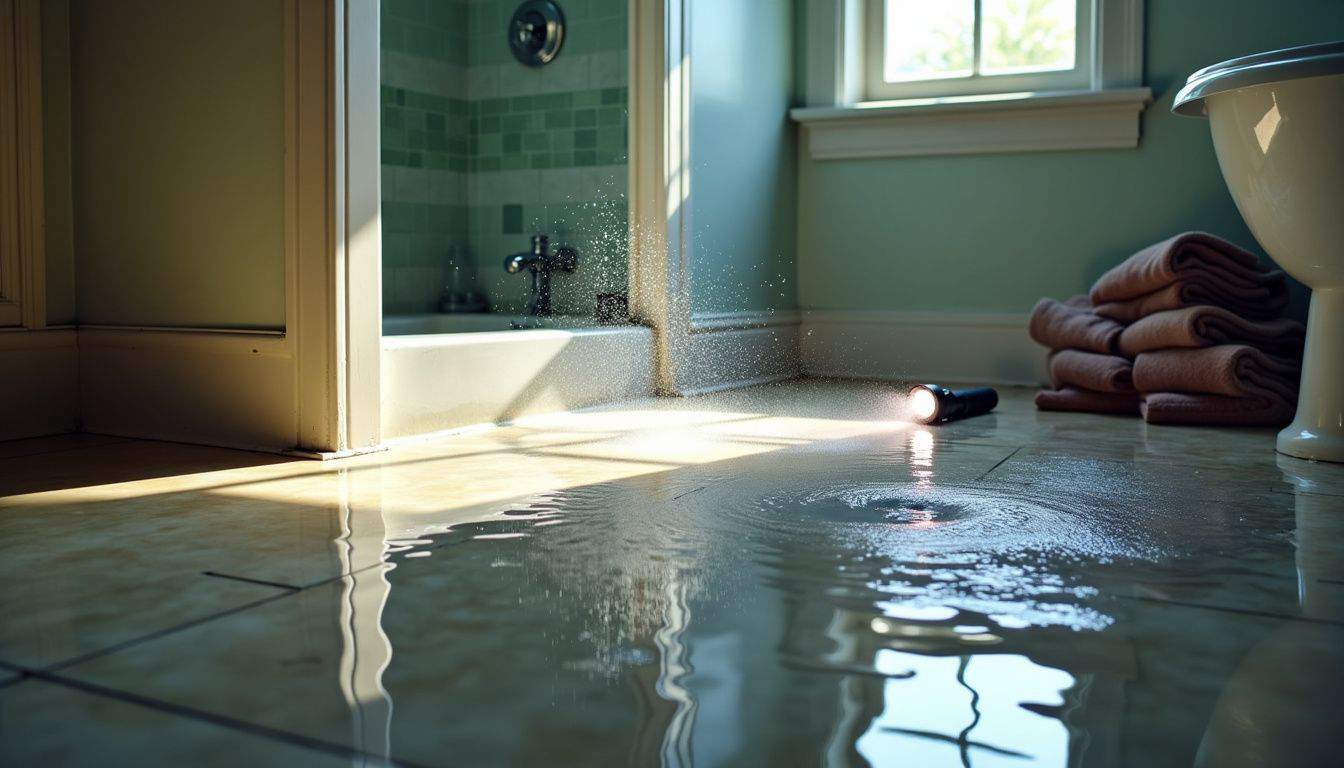
When water’s gushing everywhere, you need to act fast! Here’s the lowdown on what to do first in a plumbing emergency – it’s all about damage control, folks.
Shutting Off the Water Main
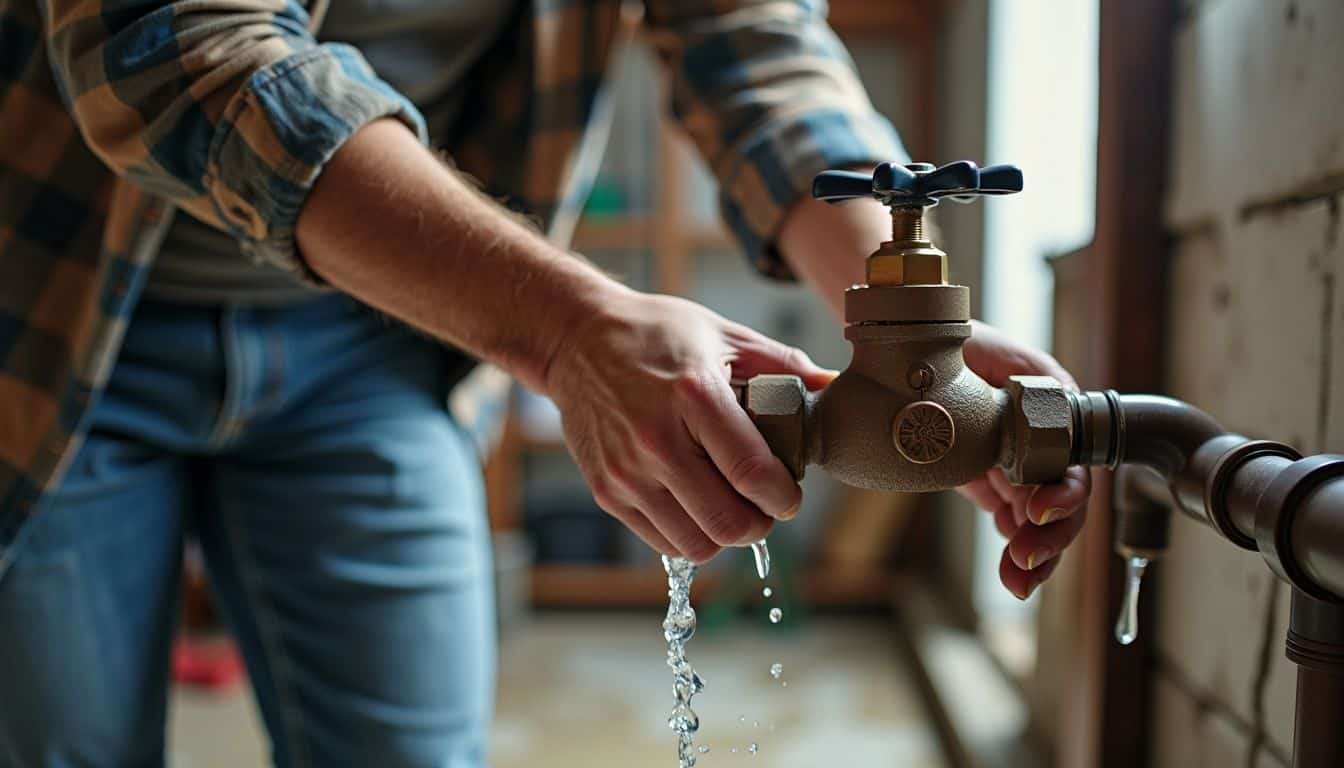 Shutting off the water main is your first line of defense in a plumbing crisis. It’s like hitting the pause button on a leaky disaster. Find the main valve where water enters your home.
Shutting off the water main is your first line of defense in a plumbing crisis. It’s like hitting the pause button on a leaky disaster. Find the main valve where water enters your home.
Usually, it’s near the front of the house or in the basement. Give it a firm clockwise turn to stop the flow. Presto! You’ve just saved your home from turning into an indoor pool.
A quick twist of the wrist can save you from a world of water woes.
But don’t stop there, fellas. Open a faucet to drain any leftover water in the pipes. This simple move can prevent a lot of headaches down the road. It’s like burping a baby after feeding – it just makes sense.
Now, let’s talk about what to do with those pesky electrical appliances near the leak….
Turning Off Electrical Appliances
Water and electricity don’t mix. It’s a recipe for disaster. In a plumbing emergency, your first move should be to unplug all electrical gadgets near the leak. This includes TVs, lamps, and even your trusty coffee maker.
Don’t risk a shock – safety first! If you can’t reach the plugs safely, head to your breaker box and flip the switches for those areas.
Turning off power isn’t just about avoiding zaps. It also protects your stuff from water damage. Wet appliances can short out, fry their circuits, or even start fires. So, pull those plugs or hit those breakers ASAP.
Your wallet (and your home) will thank you later. Plus, it’ll make cleanup a whole lot easier… and less shocking.
Opening Outside Spigots
Got a plumbing mess? Open those outside spigots! It’s a quick fix that can save your bacon. Here’s the deal: when you open the outdoor taps, it helps push out extra water from your pipes.
This trick is gold when you’re dealing with leaks or burst pipes inside. I learned this the hard way after a pipe burst in my basement. Now, I always dash to the yard and crank open those spigots.
It’s like giving your pipes a chance to breathe and spit out the excess. Trust me, it can mean the difference between a small puddle and a full-on indoor pool. Plus, it buys you time to figure out your next move or wait for the plumber to show up.
Containing Spreading Water
Water’s on the loose? Don’t panic! Grab some towels and mop up the mess. Quick action can save your floors and furniture. Use buckets to catch drips from ceilings or pipes. Move stuff out of harm’s way – electronics, rugs, and anything that can’t get wet.
If you’ve got a wet vac, now’s the time to bust it out.
A stitch in time saves nine… and a bucket in place saves your space!
Got a big spill? Make a dam with towels or sandbags to keep it from spreading. Open windows to help dry things out. But don’t forget – safety first! If water’s near outlets or appliances, cut the power.
Now, let’s talk about fixing those leaky fixtures….
Resolving Specific Plumbing Problems

Plumbing problems can strike when you least expect them. Here’s how to tackle some common issues before they spiral out of control. From leaky faucets to clogged drains, we’ve got you covered with quick fixes that’ll save your floors – and your sanity.
Fixing Leaky Fixtures
Leaky fixtures can be a real pain in the neck. But don’t sweat it! Most of the time, you can fix them yourself. Got a dripping faucet? That’s usually just a worn-out washer. Grab a wrench, shut off the water, and swap it out.
Easy-peasy. Toilets running non-stop? Check the flapper valve inside the tank. It might need replacing. A new one costs a few bucks and takes minutes to install.
For showerheads, a good cleaning might do the trick. Soak it in vinegar to clear out mineral buildup. If that doesn’t work, you might need to replace the O-ring or the whole showerhead.
Fixing these small leaks saves water and cash. A dripping faucet can waste up to 3,000 gallons a year! That’s like flushing money down the drain. So roll up your sleeves and give it a shot.
You’ve got this!
Clearing Clogged Drains and Toilets
Clogged drains and toilets can ruin your day faster than a bad haircut. But don’t panic! Grab your trusty plunger and get ready to battle that blockage. This handy tool creates suction to dislodge clogs, making it your first line of defense.
If the plunger fails, it’s time to bring out the big guns – a drain snake or auger. These flexible heroes can work through pipes to remove stubborn blockages.
Still stuck? Try a homemade drain cleaner. Mix baking soda and vinegar for a fizzy, clog-busting solution. Pour it down the drain and let it work its magic. For tougher clogs, you might need to tackle a clogged main sewer line.
This job often needs a pro, but knowing the signs can save you from a messy disaster. Keep in mind, prevention is key – regular check-ups can keep your pipes flowing smoothly and avoid future plumbing nightmares.
Repairing Water Heater Issues
Water heater issues can be a real hassle. No hot water for your shower? That’s a tough start to the day. But don’t worry – you can solve some common problems on your own. First, see if the pilot light’s out.
If so, relight it using the manufacturer’s instructions. Still no go? The thermostat could be the issue. Try adjusting it or swapping it out if needed.
Rusty-looking water often signals a worn-out anode rod. This rod protects your tank from rust, so replace it quickly. Strange sounds? That’s probably sediment build-up. Flush the tank to clear it out.
Always prioritize safety! If you detect gas odors or notice leaks, shut off the gas and call a professional immediately. Don’t tinker with gas lines or electrical components unless you’re experienced.
Managing Gas Leaks
Gas leaks are no joke. If you smell gas, get out fast! Turn off the main gas valve before you leave. Don’t flip any switches or use your phone inside. These can spark and cause a boom.
Once you’re safe outside, call the pros right away. Only they can fix gas leaks safely.
Regular checks on your gas lines and stuff can stop leaks before they start. Have a pro look at your pipes and appliances yearly. They’ll spot tiny problems before they turn into big, scary ones.
It’s way cheaper than dealing with a full-blown leak… or worse. Stay safe, guys!
Deciding to Contact a Professional Plumber
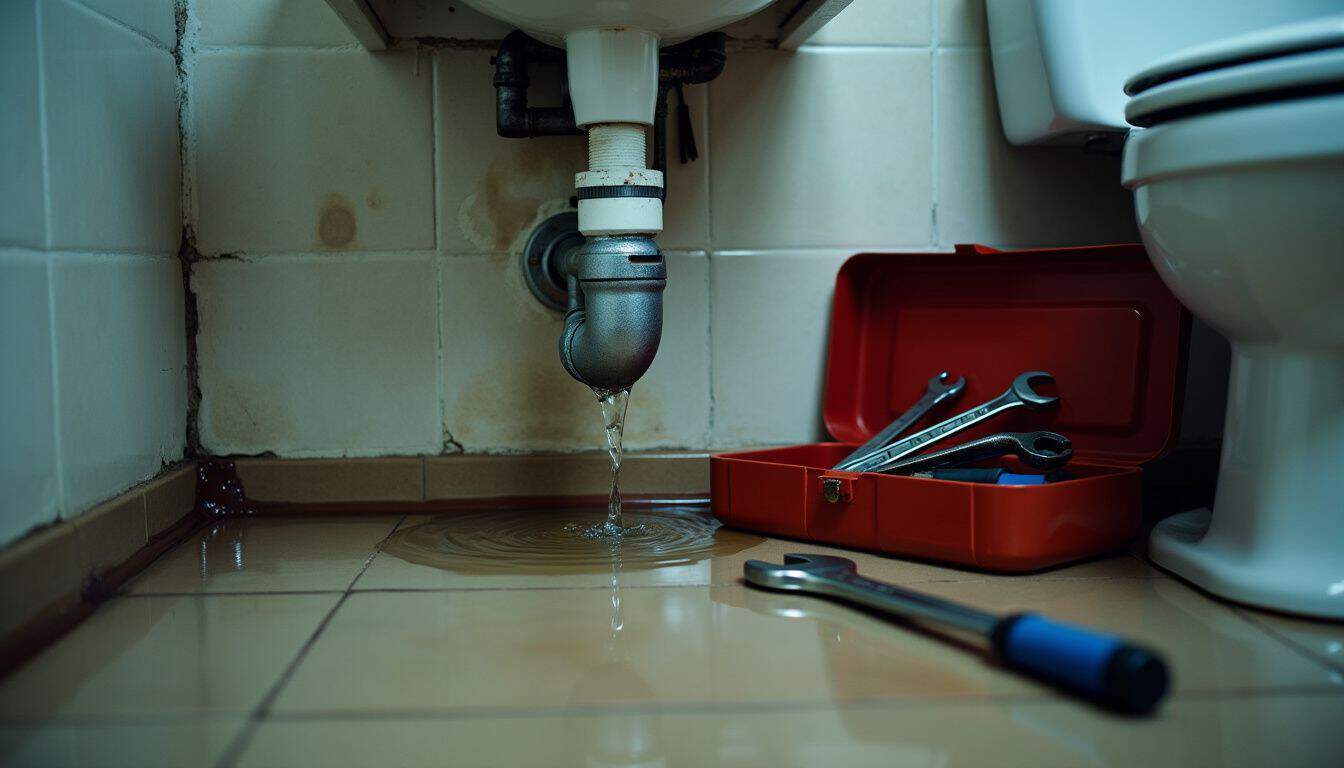
Sometimes, you gotta call in the big guns. A pro plumber can handle the tough stuff… and keep you from making a bad situation worse. Want to know when it’s time to make that call? Keep reading!
Evaluating the Severity of the Problem
Plumbing issues can range from minor drips to major floods. It’s important to know when you can fix it yourself or need a pro. Small leaks from faucets or slow drains? You might handle those.
But big problems need expert help fast. Watch for signs like water stains on walls or ceilings, mold growth, or standing water. These indicate hidden leaks that could damage your home.
Trust your instincts. If something seems off, it probably is. Unusual smells, sounds, or sudden changes in water pressure are warning signs. Don’t ignore them! Ruptured pipes or sewer backups are serious.
They can cause major damage quickly. If you notice these, call a licensed plumber right away. It might cost more upfront, but it’ll save you trouble (and money) in the long run. Keep in mind, with plumbing, it’s better to be safe than sorry.
Understanding Safety Concerns Requiring Expertise
Safety issues in plumbing can be tricky. Some problems might seem small but can lead to big trouble. Gas leaks, for example, are super dangerous. They can cause fires or make you sick.
Only pros should handle these. Same goes for major pipe bursts. If you try to fix them yourself, you might flood your house or damage your walls. That’s why it’s smart to call an expert when things get dicey.
Pros have special tools and know-how to tackle tough plumbing jobs safely. They can spot hidden issues that you might miss. Plus, they’re up-to-date on building codes and safety rules.
This keeps you and your home safe. It also saves you from costly mistakes down the road. Next, let’s talk about how to stop these emergencies before they start.
Preventing Future Plumbing Emergencies

Don’t let your pipes surprise you. Regular checks and a leak detector can save you from big headaches. Want to know more? Keep reading!
Tips for Regular Maintenance
Regular upkeep is key to avoiding plumbing disasters. Here are some easy tips to keep your pipes happy and your wallet full:
- Check for leaks monthly. A quick walk-through can save you big bucks on water bills.
- Clean drains weekly. Pour hot water down sinks to melt grease and clear gunk.
- Test your sump pump twice a year. Make sure it’s ready to tackle heavy rains.
- Flush your water heater annually. This removes sediment and boosts efficiency.
- Inspect toilet parts every six months. Replace worn flappers and fill valves to stop phantom flushes.
- Clean showerheads and faucet aerators yearly. Soak them in vinegar to remove mineral buildup.
- Don’t flush anything but TP. Wipes, cotton swabs, and other junk can clog your pipes.
- Use strainers in sinks and showers. They catch hair and food bits before they cause trouble.
- Fix drips ASAP. Even small leaks can waste gallons of water daily.
- Keep an eye on water pressure. High pressure can stress pipes and lead to bursts.
Now that you’ve got these tips down, let’s talk about when it’s time to call in the pros.
Benefits of Installing Leak Detection Systems
Leak detection systems are a game-changer for your home. They spot small drips before they turn into big floods. This means less damage to your stuff and lower repair bills. Plus, these smart gadgets can cut your insurance costs.
Who doesn’t love saving money?
These systems are like watchdogs for your pipes. They keep an eye on up to 16 different spots in your house. If water shows up where it shouldn’t, you’ll know right away. No more coming home to a soggy surprise.
It’s peace of mind in a box – and that’s worth its weight in gold.
People Also Ask
Help! My pipes are frozen. What should I do?
When Jack Frost nips at your water pipes, don’t panic. First, turn off the main water supply. Then, open your taps to relieve pressure. Use a hairdryer or heating pad to thaw the frozen section. Never use an open flame! If you’re not comfortable doing this, call an emergency plumber pronto.
My toilet’s overflowing! How do I stop it?
Whoa there, Niagara Falls! First, lift the tank lid and push down the float valve to stop water flow. If that doesn’t work, turn off the water supply valve near the toilet’s base. Don’t flush again! Use a plunger or drain snake to clear the blockage. If the problem persists, it’s time to ring up a pro.
There’s a leak under my sink. What’s my next move?
Don’t let that drip drive you batty! Place a bucket under the leak to catch water. Turn off the water supply valves under the sink. Tighten any loose connections. If that doesn’t do the trick, wrap the leaky spot with plumber’s tape as a temporary fix. Then, call a plumber to tackle the root cause.
My water heater’s on the fritz. What should I check?
Brrr! Cold showers are no fun. First, check if the pilot light is out (for gas heaters) or if a circuit breaker has tripped (for electric ones). If these aren’t the culprits, flush out sediment by attaching a garden hose to the drain valve. Still no luck? Time to call in the cavalry – a professional plumber, that is.
The sewer smell in my bathroom is awful. What’s going on?
Phew! That stinks! The likely culprit is a dry P-trap, which normally blocks sewer gas. Run water in all your fixtures for a few minutes to refill the traps. If the smell persists, you might have a more serious issue with your sewer system. Don’t wait – get a plumber to sniff out the problem.
My sump pump isn’t working. What can I do to prevent flooding?
Oh no, not the sump pump! First, check if it’s plugged in and the circuit breaker hasn’t tripped. Clean out any debris in the sump pit. If it still won’t kick on, you might need a new pump. Don’t delay – a faulty sump pump can lead to a wet and wild basement party you didn’t plan for!
References
https://happyhiller.com/blog/what-is-considered-a-plumbing-emergency/
https://nationaleconomyplumber.com/6-signs-you-are-dealing-with-a-plumbing-emergency/
https://intownplumbingtx.com/articles/plumbing-emergencies-solutions/ (2024-09-11)
https://www.duncanplumbing.us/blog/common-plumbing-emergencies/ (2024-01-23)
https://www.bellowsservice.com/emergency-plumbing-guide/
https://danikaplumbing.com/urgent-common-plumbing-issues/ (2022-12-14)
https://quartermoonplumbing.com/the-6-most-common-plumbing-emergencies/
https://www.davisheat.com/plumbing/be-prepared-5-most-common-plumbing-emergencies/ (2024-04-25)
https://www.hutchbiz.com/blog/2023/01/12/9-steps-for-handling-plumbing-emergency-situation/ (2023-01-12)
https://woolfplumbing.com.au/blog/emergency-water-shutoff-guide
https://wattersplumbing.com/tips/what-to-do-in-a-plumbing-emergency/
https://trusteyman.com/blog/what-to-do-in-a-plumbing-emergency/ (2021-12-20)
https://bestplumbing.com/blog/what-to-do-in-case-of-a-plumbing-emergency/ (2020-10-23)
https://arcticair4me.com/blogs/aahs/what-to-do-in-a-plumbing-emergency-before-the-plumber-arrives
https://www.1tomplumber.com/what-to-do-in-plumbing-emergency-guide/
https://todayshomeowner.com/plumbing/guides/6-common-plumbing-problems-and-how-to-fix-them/ (2024-04-15)
https://westendplumbing.com/clogged-drains-and-what-to-do-about-them/
https://plumbingtoday.biz/blog/easy-plumbing-tips-to-prevent-and-clear-clogged-drains (2024-08-19)
https://thomasgalbraith.com/knowledge-center/troubleshooting-common-water-heater-issues/
https://www.angi.com/articles/really-plumbing-emergency.htm (2024-05-14)
https://fixedtoday.com.au/blog/handling-plumbing-emergency
https://www.reidheadplumbing.com/2024/03/28/what-to-do-in-a-plumbing-emergency-quick-tips-until-help-arrives/ (2024-03-28)
https://www.meenan.com/resource-center/tips-to-prevent-plumbing-emergencies-m
https://www.mrplumberatlanta.com/help-guides/tips-prevent-plumbing-emergencies
https://www.cmrelectrical.com/blog/water-leak-detection-systems/ (2017-08-21)
https://www.waterleakdetection.net.au/top-10-benefits-of-professional-water-leak-detection/ (2024-07-29)
